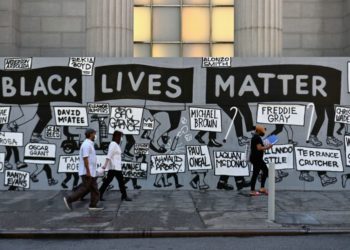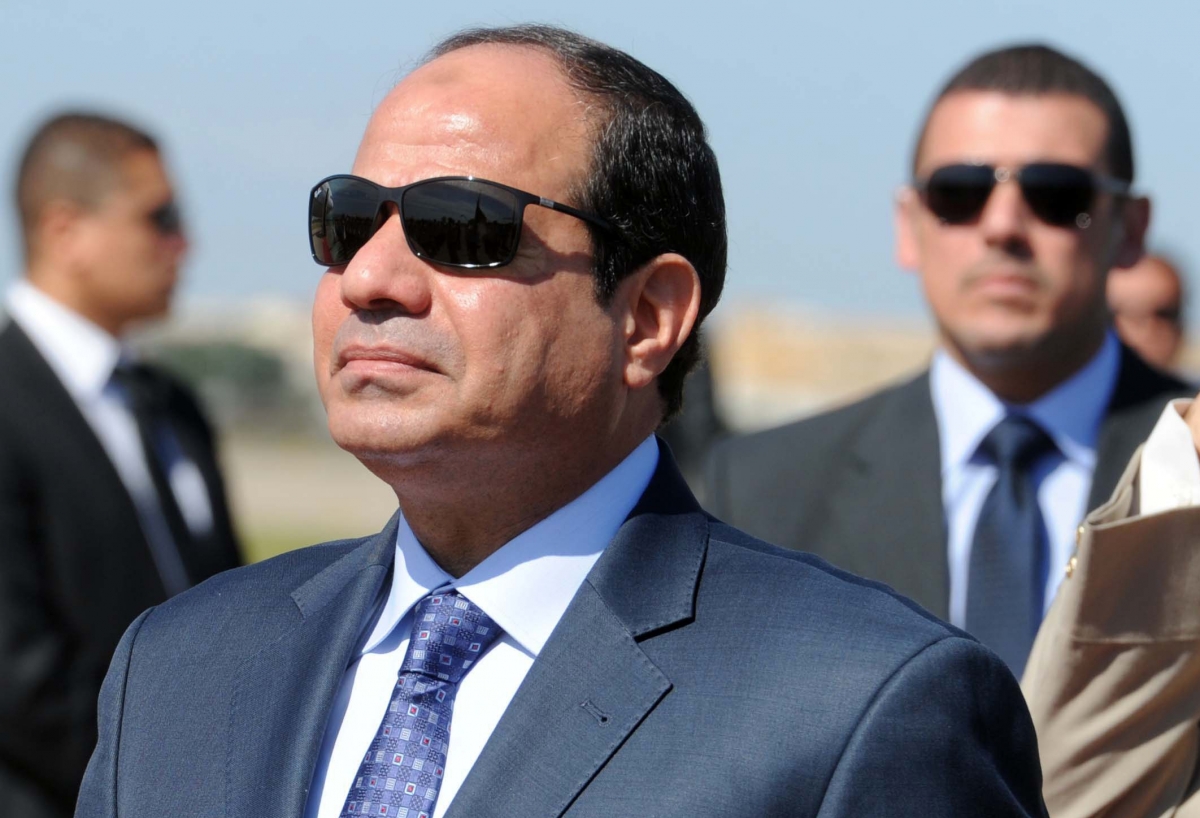After obtaining a student visa, Jewish-American activist Ariel Gold was denied entry into Israel on July 2 following her arrival at Ben Gurion Airport in Tel Aviv because of her support for the Boycott, Divestment, Sanctions movement.
The movement — commonly known as BDS — seeks to exert financial pressure on Israel to meet demands including ending its military occupation of the West Bank and the Gaza strip.
“Those boycott activists must understand that the rules of the game have changed. They will no longer be allowed to enter the country,” Israeli Interior Minister Arye Dery said in a statement following Gold’s denial.
At a press briefing on July 3, State Department spokesperson Heather Nauert was asked whether the department is okay with an American citizen being denied entry into Israel for political reasons.
“Countries are … allowed to admit or not to admit certain people,” Nauert said. “We as the United States government do not support what you call BDS.”
But beyond simply condemning the BDS movement, a number of U.S. lawmakers are quietly making a new push to crack down on it. On June 28, a new version of the controversial Israel Anti-Boycott Act was unanimously passed through the House Foreign Affairs Committee — a major step towards getting a bill enacted into law.
The new legislation, sponsored by Sen. Ben Cardin (D-Md.), would allow the federal government to issue civil and criminal penalties to organizations who “comply with, further, or support” the BDS movement.
Cardin’s bill is just one part of a broader effort from legislators across the country to hinder the BDS movement. According to the American Civil Liberties Union, 24 states have passed laws aimed at punishing BDS activists.
Omar Barghouti, a co-founder of the BDS movement for Palestinian rights and a co-recipient of the 2017 Gandhi Peace Award, told The Globe Post that he believes anti-BDS legislation can be traced back to initiatives by the Israeli government and its lobbying groups in the U.S.
“Israel’s regime is arrogantly trying to delegitimize the boycott, a time-honored nonviolent tactic of resisting injustice, and thus to suppress free speech,” Barghouti, who was born in Qatar to a Palestinian family, said.
Gold, who told The Globe Post she was “very disappointed” but not surprised by the State Department’s response to her denial of entry, also drew a connection between anti-BDS efforts in the U.S. and Israeli initiatives.
“We are watching a growing alliance between the right-wing Netanyahu administration and the right-wing Trump administration,” she said, adding she feels the new legislation is “unconstitutional and extremely dangerous.”
A spokesperson for the American Israel Public Affairs Committee, an influential pro-Israeli lobby group in the U.S., confirmed to The Globe Post that the group supports the latest version of the Israel Anti-Boycott Act.
The organization said in a statement that the BDS movement “has emerged in an effort to stigmatize, delegitimize and isolate the State of Israel.”
The latest version of the Israel Anti-Boycott Act adds amendments to the 1979 Export Administration Act, which was originally passed in response to a boycott of Israel called for by the Arab League. The league attempted to force American companies to boycott Israel as a precondition for doing business in the Middle East and parts of Northern Africa. Congress responded by making it illegal to boycott allied countries at another nation’s request.
The Israel Anti-Boycott act seeks to expand that legislation to prohibit U.S. companies and organizations from complying with voluntary requests to boycott Israel from non-state actors such as the United Nations and the European Union.
Citing the Supreme Court’s 1982 decision in the NAACP vs. Claiborne Hardware case, ACLU attorney Brian Hauss said in a post that the latest Israel Anti-Boycott Act is unconstitutional because it violates Americans’ first amendment right to participate in political boycotts.
“The Israel Anti-Boycott Act seeks to dictate the political activities Americans can and can’t engage in … by imposing civil and criminal penalties on American organizations that participate in political boycotts called for by international organizations,” Hauss said.
In a 2017 letter to the ACLU, Sen. Cardin and Sen. Rob Portman (R-Ohio) argued that “Congress has the authority to put limits on international commercial conduct” and claimed the bill does not prevent individuals or companies from boycotting Israel “on their own accord.” The Senators also clarified that Americans cannot be imprisoned for their boycott participation under the new law.
Barghouti noted that in addition to the ACLU, human rights organizations such as Amnesty International and the International Federation for Human Rights (FIDH) have defended the right to boycott Israel as a matter of freedom of speech.
Sarah Stern, founder and president of the Endowment for Middle East Truth, a pro-Israel think tank based in Washington D.C., told The Globe Post her organization enthusiastically supports the new anti-BDS legislation.
“This isn’t political speech, this is business,” Stern said of the BDS movement, adding that she believes its tantamount to “economic warfare against the state of Israel.”
Experts have estimated that the BDS movement could cost the Israeli economy anywhere from $15 billion to $47 billion over the next decade.
With the Israel Anti-Boycott Act through the House Foreign Affairs Committee, the bill is now set to be voted on by House. The bill has 289 cosponsors in the House and 55 cosponsors in the Senate.
The office of majority leader Kevin McCarthy, which is responsible for scheduling votes in the House, did not respond to inquiries about when the Israel Anti-Boycott Act will be voted on. The bill would then have to be passed by the Senate and signed by President Donald Trump before becoming law.
If that were to happen, Gold said her and her organization wouldn’t be deterred from continuing their participation in the movement.
“We’d have to see how it rolls out … but we have no intentions of stopping our work,” she said.






















